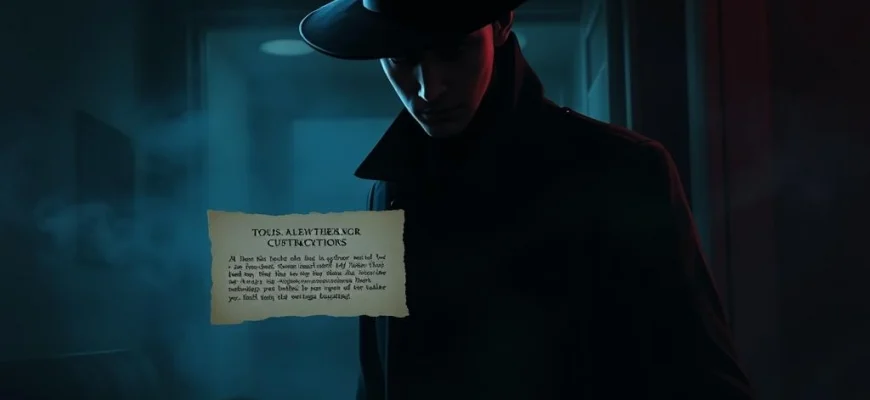If you enjoyed the gripping espionage thriller 'The Human Factor' (1975), you're likely craving more films that delve into betrayal, Cold War tensions, and psychological depth. This article highlights 10 similar movies and shows that capture the same intrigue, suspense, and moral ambiguity, perfect for fans of spy dramas and character-driven narratives.

The Manchurian Candidate (1962)
Description: A Cold War-era psychological thriller exploring brainwashing and political manipulation, with a protagonist who may be an unwitting assassin.
Fact: The film was controversial for its political themes and was temporarily withdrawn from circulation after JFK's assassination. Its dream sequences were groundbreaking in their surreal presentation.
 Watch Now
Watch Now 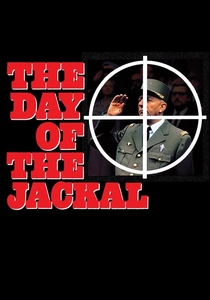
The Day of the Jackal (1973)
Description: A methodical thriller about an assassin's meticulous preparation for a high-profile target, showcasing the clinical precision of professional killers and the efforts to stop them.
Fact: The film was shot in actual locations across Europe to enhance authenticity. It maintains suspense despite audiences knowing the historical outcome of the plot.
 Watch Now
Watch Now 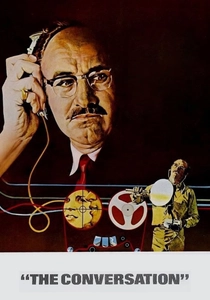
The Conversation (1974)
Description: A psychological thriller that delves into themes of surveillance, paranoia, and moral ambiguity, featuring a protagonist who becomes increasingly isolated and distrustful of those around him.
Fact: The film won the Palme d'Or at the 1974 Cannes Film Festival. Its sound design was highly innovative, using overlapping dialogue and ambient noise to create a sense of unease.
 Watch Now
Watch Now 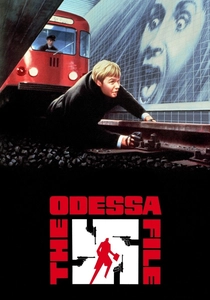
The Odessa File (1974)
Description: A investigative thriller about a journalist uncovering Nazi war criminals in post-war Germany, blending historical reckoning with personal vengeance.
Fact: The film was based on Frederick Forsyth's bestselling novel. Its car chase sequence through Hamburg was notable for its realism and lack of stunt doubles.
 Watch Now
Watch Now 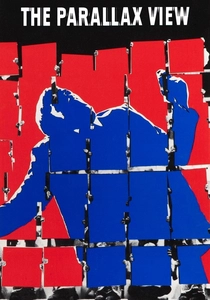
The Parallax View (1974)
Description: A conspiracy thriller that examines the shadowy world of political assassinations and the difficulty of uncovering the truth in a world of deception.
Fact: The film features a famous psychological test sequence used to evaluate potential assassins. Its bleak ending was controversial at the time of release.
 Watch Now
Watch Now 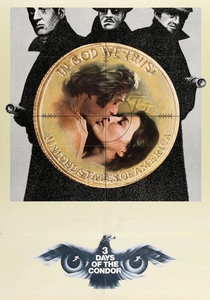
Three Days of the Condor (1975)
Description: A tense espionage thriller that explores betrayal and conspiracy within intelligence agencies, with a protagonist forced to go on the run after uncovering a deadly secret.
Fact: The film was partially inspired by real-life CIA operations. Its New York City filming locations add a gritty, realistic atmosphere to the story.
 Watch Now
Watch Now 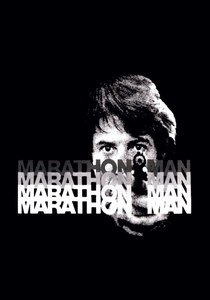
Marathon Man (1976)
Description: A gripping thriller that combines personal trauma with international intrigue, featuring an ordinary man caught in a web of espionage and violence.
Fact: The infamous dental torture scene became iconic in thriller cinema. The film's title refers to the protagonist's hobby of long-distance running.
 Watch Now
Watch Now 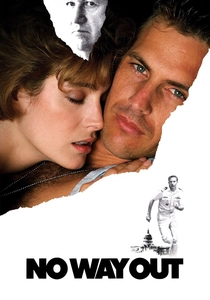
No Way Out (1987)
Description: A political thriller involving government cover-ups and mistaken identities, where the protagonist must navigate a labyrinth of deception to clear his name.
Fact: The film features one of cinema's most memorable twist endings. Its plot involves a fictional high-tech surveillance system called 'Orion'.
 Watch Now
Watch Now 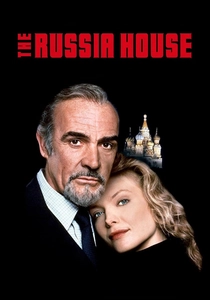
The Russia House (1990)
Description: A romantic espionage story set during the final days of the Cold War, focusing on the moral dilemmas faced by those caught between opposing intelligence services.
Fact: The film features authentic Moscow locations shot during perestroika. Its jazz soundtrack by Branford Marsalis became critically acclaimed.
 Watch Now
Watch Now 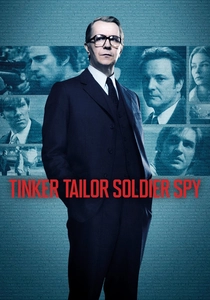
Tinker Tailor Soldier Spy (2011)
Description: A slow-burning espionage drama that focuses on the meticulous unraveling of a mole within intelligence services, emphasizing tradecraft and psychological tension over action.
Fact: The film is based on John le Carré's novel of the same name. Its color palette and production design meticulously recreate the 1970s Cold War era.
 Watch Now
Watch Now 
